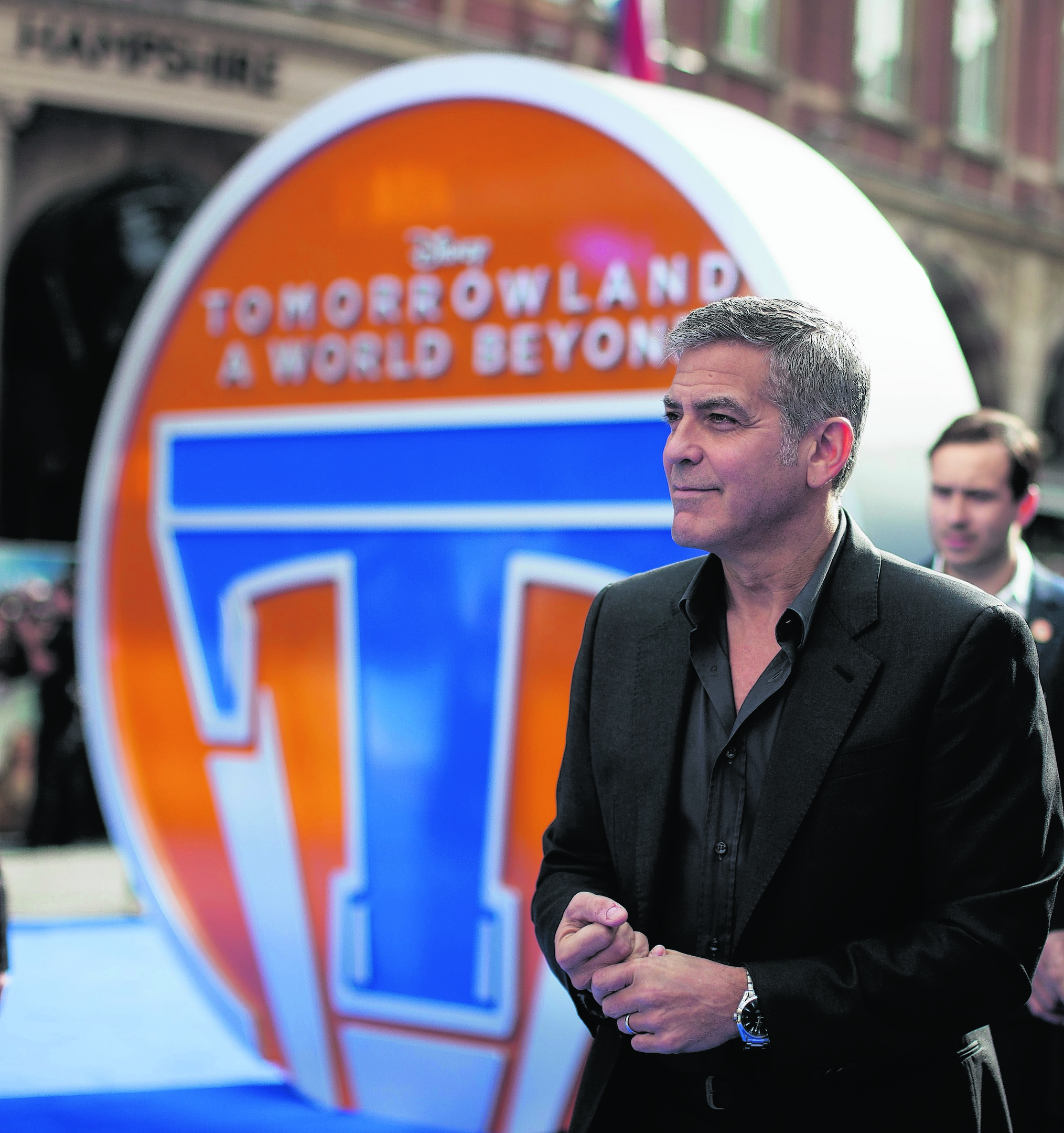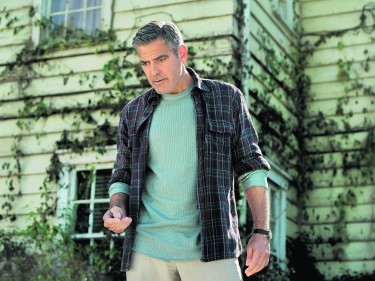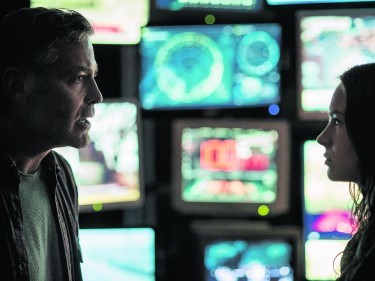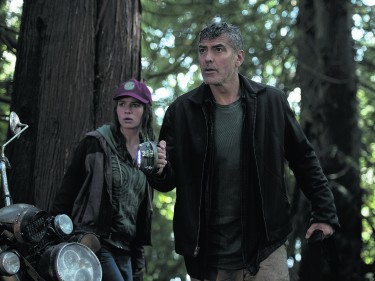George Clooney knows how hard it can be on set, and as a movie lead, feels it’s his responsibility to lift morale when the going gets tough.
In fact, in the past, he’s confessed to busting out Sugar Hill Gang hits between scenes. Is he still singing the hip-hop group’s numbers?
“I do still sing them every once in a while to entertain the troops,” says the 54-year-old. “They think, ‘Gosh. We’re in the water. It’s cold. We’re shooting 14 hours. It’s terrible. What could be worse?’ And then I rap…” he adds with a laugh.
Clooney stars as Frank, a disillusioned inventor, in Disney’s new Tomorrowland: A World Beyond (out now).
Writer and director Brad Bird only ever envisioned him in the role, infusing Frank “with a curmudgeonly humour and a heroic quality, all of which we think George embodies”.
And much to his – and co-writer Damon Lindelof’s – relief, the eight-time Academy Award-nominated actor (he won in 2006 for Syriana and 2013 for Argo, and has now been nominated in more categories than anyone else in Oscar history) was intrigued by the project.
“Putting me in a summer movie is a very bold thought,” says Clooney, who rose to fame in Nineties hospital drama ER, as heart-throb Dr Doug Ross.
“Y’know, listen, first and foremost, I think it’s a really bold thing for Disney to be willing to do a film that isn’t a sequel and isn’t a comic book, and to truly invest in a summer film of this sort of ilk,” he explains, smiling.
The origin of the ambitious movie stems from Walt Disney himself, an optimist and innovator who believed that technology held the key to building a better world.
In 1955, he created Tomorrowland as a section of Disneyland, and later introduced three rides for the 1964 World’s Fair including It’s A Small World, in reference to the world finding itself on the brink of nuclear war as a result of the Cuban Missile Crisis.
“I actually grew up during the Cold War period, and although we always thought the world would end in some sort of nuclear holocaust, everybody was pretty hopeful,” remarks Clooney, who was born in Kentucky, the son of a game show host and former beauty queen.
“I grew up in an era where the voice, the power of the one, really did feel as if it mattered. We obviously had the riots that are reminiscent of the things we’re looking at today, but we also had the Civil Rights Movement and we had Vietnam and we had the women’s rights movements, and all those things where you felt you could actually have some part of changing.
“So I didn’t ever have that great disappointment in mankind. I always felt that it’s going to work out in the end, and I still feel that way.”
Once the world’s most famous bachelor, before he married British-Lebanese barrister Amal Alamuddin last September (he bats away – albeit with good grace – any questions about whether he’s feeling broody), Clooney describes his character Frank as “a disenchanted grump who was a bit of a dreamer as a young boy”.
“Young Frank goes somewhere he thinks is the greatest in the universe, and he believes the world is going to be much better off because of it. He finds out that those things are untrue and becomes probably the most cynical person one could be,” explains the actor.
Frank isolates himself on his family farm, and plans to spend the rest of his life there, but he is forced to deal with his past when Casey, a bright, optimistic teen played by Britt Robertson, enters his life.
Together, they embark on a mission to unearth the secrets of the enigmatic place, located somewhere in time and space, known only as Tomorrowland, where, as the movie posters tell us, ‘nothing is impossible’.
“What I loved about the film was that it reminds you that young people don’t start out their lives cynical or angry or bigoted. You have to be taught all those things. I watch the world now and think, ‘Well, I see really good signs from young people out there’, and I feel as if the world really will get better,” he adds.
But then Clooney is, he says, an optimist.
“I’ve been a realist – but I’ve been an optimist about it,” he clarifies, laughing.
In 2006, he and his father, Nick, travelled to drought-stricken Darfur, Africa, to film the documentary A Journey To Darfur. He’s since addressed the United Nations Security Council on the subject matter, narrated the 2007 Darfur documentary Sand And Sorrow and, in 2010, co-produced the Hope For Haiti Now! telethon, which raised more than 66 million US dollars.
“You end up participating in whatever way you can,” he says. “You find as time goes on and you become more comfortable in your career path, it’s not just about work. You’re able to focus on other things and other people, particularly in this line of work, where there’s a lot of attention focused on you.
“We’re not policy makers,” Clooney continues. “So what we try to do is shine a light on people who really don’t get shone upon.”



